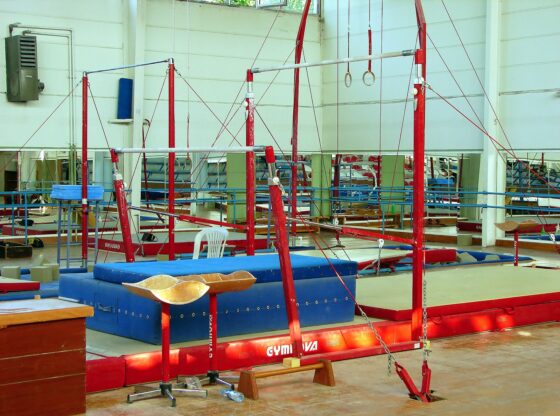At last count, 95 students contracted a stomach virus when they came in contact with contaminated surfaces,
“It comes from dirty hands,” was the verdict.
Dr. Sam Alexander, executive director of University Health and Counseling Services, said hands coming in contact with contaminated surfaces were the cause of an outbreak of Norovirus that has afflicted 95 students since April 13.
The number of students reporting the virus is on a steady decline, however, with only two new cases being reported since Sunday evening.
Denver Health Department officials declared the campus safe on Wednesday after determining that Norovirus, a virus that causes stomach flu, vomiting and diarrhea, was to blame for students ailments.
University Communications started sending out warning e-mails to the university community Tuesday morning, but by then over 30 students were already sick.
The virus reared its head April 13 evening when calls began pouring in to the on-call physician who works from Porter Hospital. Students were advised to go the emergency room. When Alexander opened the door to the health center Monday morning, six students were already standing by the door.
“It’s not uncommon in closed communities like college campuses,” said Alexander of the virus’ quick spread.
Initially, many students believed they had come down with food poisoning after eating in the cafeteria at Centennial Halls.
“I really felt that I had food poisoning. My stomach felt bloated, and my intestines were burning,” said Read Trammel, a freshman living in Halls.
Trammel began feeling sick Wednesday afternoon, but says he felt better by the weekend after spending the weekend recuperating at home. “I guess I’m one of the lucky ones,” he said. “There were six people on my floor who got the Norovirus.”
Another Halls resident, Lauren Golder, said she felt “nauseous and crampy and just wanted to curl up in a corner” when she started feeling symptoms on Wednesday afternoon. Golder called her case “mild” but said on Friday that she was still unable to eat much.
“Three people on my floor have been to the hospital (that I know of) and one girl was there for two nights. I’ve never seen someone so sick in my life,” said Golder.
“The reason why it was thought to be food poisoning initially (was because) so many people lived in Halls,” said Alexander.
Sodexho, the on-campus dining caterer, said they cooperated fully with the Health Department’s investigation and are taking this occurrence extremely seriously.
“Of course we take these investigations seriously,” said Monica Zimmer, senior manager of public relations for the company. “We take food services safety very seriously.”
Every three years, Sodexho managers are recertified in food handling and safe food practices.
DU managers went through this certification process in March, said Zimmer.
The Health Department also “gave Sodexho very high marks on how employees handle food and the way they use preventative hygiene procedures,” during their initial investigation on Monday, said Zimmer.
Not all of the sick students lived in Halls, however. A high percentage of the lacrosse team also experienced Norovirus.
Although Denver Public Health has declared the campus safe, investigations are continuing into the exact cause of the virus’ spread.
Until the investigation is complete, Alexander urges students to continue washing their hands for 20 seconds each time.
Norovirus is spread when a person comes into contact with feces, which somehow then enters the mouth.
“The main thing that we stress is hand washing,” said Alexander, adding, “It’s not a food issue. It’s a dirty hands issue.”
Another preventative measure being taken by the university is deep cleaning all of the common surfaces in the dormitories twice a day, all restrooms, the Ritchie Center and the lacrosse locker rooms.
Those actions will continue for at least another week, said Alexander.
While new cases are not being reported in high numbers, Alexander stresses that the virus remains contagious up to two weeks after a person stops showing symptoms.
“We definitely feel like we’re on the downside of this,” said Alexander, but added that Norovirus does not go away quickly.
“We do know that Norovirus is not going to end suddenly. We expect to see people that are ill with this for a couple of weeks.”
Freshman Josh Rosenholtz, a Halls resident, worries that the virus will spread again.
“I was at a boarding school last year that had an outbreak of Norovirus two years in a row. This sickness is very powerful and definitely seems to thrive in dorms. I wouldn’t be surprised to see it again.”
Rosenholtz went to the hospital in the early hours of Thursday morning.
He said the medications he received made him feel better, but as of Friday his cold-like symptoms had still not resided.
Although campus has been declared safe, many students are unhappy with how this outbreak was handled.
“…because it took so long for the university to tell us what people had, the people I knew assumed it was food poisoning and probably weren’t as cautious as we could have been,” said Trammel.
“I realize it takes time to do tests, but it seems to me like the initial outbreak wasn’t handled very well.”
Golder agreed with Trammel, but even after hearing that contaminated food was cleared of blame, still believes the food was the cause.
“The worst part (in my opinion) is that the university is failing to address the most likely cause of the outbreak,” said Golder.
“Sure, hand-washing and soap-use are important in preventing further spread of the virus, but I think the university needs to improve food quality overall.”
Rosenholtz sees contaminated food as the likely cause of his ordeal, too: “I am fairly sure that I got the infection from eating at the cafeteria.”
In response, Alexander said, “I can really stress to people at least this doesn’t appear to be related to the dining services here.”
He ate in the Halls cafeteria during the week.
Last night, Denver Public Health sent out online questionnaires to all students, whether they were ill or not.
Alexander urges students to respond to the e-mail in order to help find the cause of the virus.











